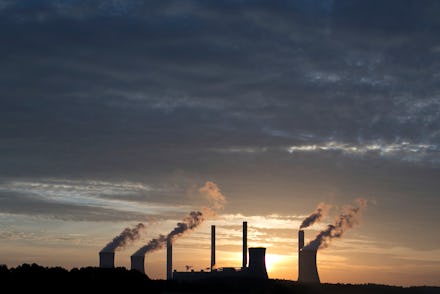Studies are showing that climate change could kill thousands — or even millions — by 2100

Drowning polar bears or bleached coral reefs might not alarm everyone, but climate change’s ability to cause thousands (or even millions) of human deaths in the near future should worry you. Two recent studies are projecting doomsday-esque results if global warming continues to go unrestricted.
Intolerable temperatures
As the world heats up, large portions of our planet could find themselves in further danger. In some parts of South Asia, a region where one-fifth of the world’s population lives, humidity and heat are projected to “exceed the upper limit of human survivability” by the end of the 21st century, according to one study released Wednesday. That basically means that the some parts of South Asia’s tropical climate will cross over into deadly temperatures before 2100, if scientists are forecasting correctly.
“The increase in humid heat raises important questions of environmental justice in agricultural areas where the inhabitants — the majority of whom work outdoors and have poor access to air conditioning — are most vulnerable,” the study’s release explains. Heat waves are already causing massive death tolls: In 2015, for example, about 3,500 people died during heat waves across India and Pakistan. Now, scientists are basically saying it may only get worse from here.
Unbreathable air
By the year 2100, the world is projected to reach 260,000 annual deaths spurred by climate change’s exacerbating effect on air pollution, according to a recent study from the University of North Carolina Chapel Hill released Monday.
Hot temperatures “speed up the chemical reactions that create air pollutants like ozone and fine particulate matter, which impact public health,” the study’s release explains. “Locations that get drier may also have worse air pollution because of less removal by rain, and increased fires and windblown dust.”
But air pollution and heat waves are not the only factors that will be heightened by climate change in the near future. The World Health Organization estimates about 250,000 more people are expected to die every year between 2030 and 2050 from malaria, diarrhea, heat stress and malnutrition exacerbated by climate change.
It’s terrible news, but it’s also incredibly convincing evidence that the world should act now.